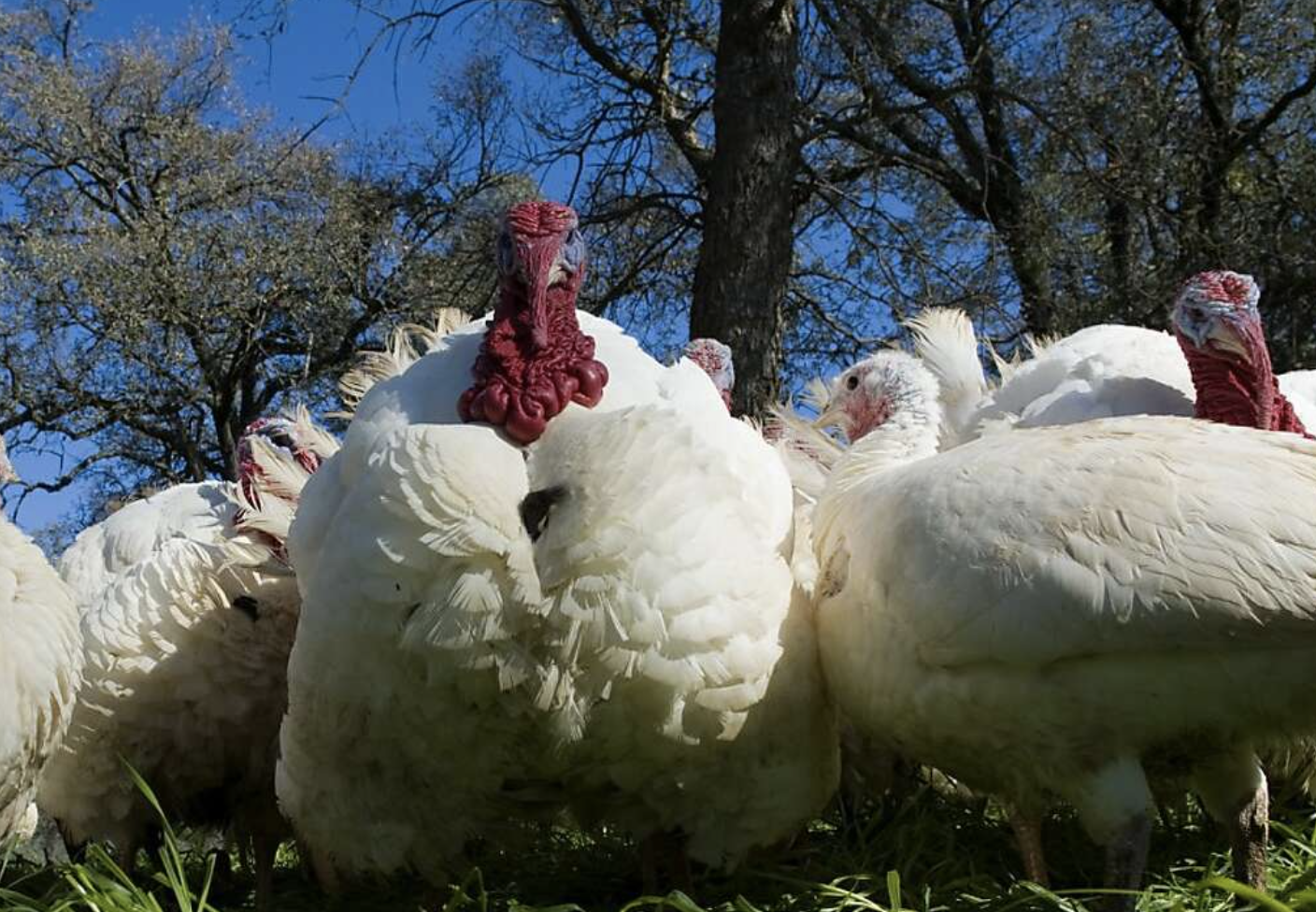
PRACTITIONER BLOG
Read our analyses of developments in Impact Litigation and stay current on class action law

IMPACT FUND & AMICI to CALIFORNIA COURT OF APPEAL: PROTECT CATALYST FEES
In June, Impact Fund filed an amicus brief on behalf of thirty-six other public interest law organizations in San Diego Tenant Union et al. v. San Diego Housing Commission et al., in the California Court of Appeal. Our brief asked the Court to affirm the availability of catalyst fees to plaintiffs' counsel in successful public interest lawsuits because nonprofit legal services organizations rely upon the fee-shifting provisions of catalyst fees to undertake important litigation. “Catalyst fees” are a legal mechanism by which defendants pay plaintiffs attorneys’ fees when plaintiffs’ lawsuit induces defendants to provide the relief sought by plaintiffs—in other words, when plaintiffs’ lawsuit “catalyzes” defendants’ change in conduct.

SNAP Lawsuit Dismissed - Mission Accomplished: Increased Food Security For 40M!
Shortly after Plaintiffs initiated the lawsuit, the USDA implemented a key accounting policy change that was requested in the class action complaint. The new policy provides protection for SNAP recipients by ensuring that benefits continue for one month after a lapse in federal appropriations. However, while this ensured SNAP benefits were not suddenly interrupted, because Congress continued to pass only short-term budget resolutions, class members faced ongoing uncertainty whether their benefits would be allocated on a longer-term basis. Plaintiffs reported trying to conserve their SNAP benefits by rationing funds, distracting themselves from hunger with water and sleep, and choosing between food and other basic necessities such as gas, hotel rooms for homeless plaintiffs and vital medications.

Talking Turkey: Impact Fund Files Amicus Brief To Protect Catalyst Fees For Plaintiffs
In Direct Action Everywhere v. Diestel Turkey Ranch, the plaintiff filed a false advertising lawsuit alleging that Diestel was deceiving customers about the condition in which it kept animals on its properties. Several days into the trial, Diestel voluntarily removed the allegedly false statements from its website as part of a “website refresh.” The trial court denied Direct Action’s motion for catalyst fees for multiple reasons, two of which stood out to the Impact Fund and its allies. First, the court scorned the plaintiff’s reason for bringing the lawsuit and, second, it criticized the plaintiff’s activities outside the courtroom.

Impact Fund and Western Center on Law and Poverty Reach Settlement with USDA to Provide Emergency Food (SNAP) Assistance to Californians with Greatest Need
Over one million California households will soon be eligible to receive emergency COVID-19 related nutrition assistance, thanks in part to a settlement agreement reached yesterday by the Impact Fund, Western Center on Law and Poverty, and the U.S. Department of Agriculture. This important victory comes after ten months of litigation in Hall v. USDA, which challenged the Department’s interpretation of the March 2020 law authorizing emergency Supplemental Nutrition Assistance Program (SNAP) payments—otherwise known as food stamps—to current SNAP recipients. Within hours of the settlement, USDA issued new guidance announcing a policy change that will provide at minimum $95 a month in emergency assistance to all households participating in SNAP on top of their regular monthly benefits. This updated policy will ensure the lowest-income Californians will have access to vital nutrition assistance while continuing to deal with the severe economic and public health consequences of the COVID-19 pandemic.

Impact Fund and NAACP Legal Defense Fund to SCOTUS: Don’t Rewrite Typicality
The Impact Fund and NAACP Legal Defense and Educational Fund, Inc. filed an amicus brief in the U.S. Supreme Court on behalf of ourselves and twenty-four civil rights organizations. We argue that Ramirez indisputably satisfied typicality, as every class member in the case presented the same claims, were subject to the same conduct, and sought the same relief as Ramirez did. “TransUnion seeks to turn Rule 23 typicality on its head, asking the high court to rewrite the rule to protect defendants rather than absent class members,” declared Impact Fund’s Executive Director Jocelyn Larkin. “Nothing in the language or purpose of the rule supports TransUnion’s approach.”

Impact Fund & Amici Support State Efforts to Protect Vulnerable Workers During Deadly Pandemic
The California Department of Industrial Relations, Division of Occupational Safety and Health has a duty to keep California workers safe. Our amicus briefs make clear that the state fulfilled its duty in this instance. The Emergency Temporary Standards provide basic, necessary workplace protections for all workers and serve as an important step toward mitigating the health, income, and racial inequities caused by the COVID-19 pandemic.

Protect Nutrition Assistance for Vulnerable Low-Income Adults, Say Impact Fund and Others in Amicus Brief
Last Thursday, the Impact Fund, Western Center on Law and Poverty, and Pillsbury Winthrop Shaw Pittman LLC filed an amicus brief on behalf of our organizations and 27 additional legal and advocacy organizations in California, including a number of anti-hunger groups, in support of the plaintiffs in the D.C. case. Our brief focuses specifically on discretionary exemptions, which will be critical to California’s economic recovery. We detail the legislative debates considering and ultimately rejecting the very same changes that USDA seeks to implement, the plain language and history of the statute, and the harm that California faces if it loses its reserve of over 850,000 exemptions. California uses discretionary exemptions to prevent hunger in communities that face special difficulties in finding work, such as people who are formerly incarcerated or young adults aging out of the foster care system. If USDA’s rule goes into effect, it will eliminate the State’s reserve and could cause thousands of Californians to go hungry.

SNAP! Impact Fund and Western Center on Law and Poverty File Class Action Lawsuit Against USDA For Denying Emergency Food Assistance To Californians With Greatest Need
On May 21, 2020, the Impact Fund and the Western Center on Law and Poverty filed a class action lawsuit in federal court in San Francisco against USDA and Secretary of Agriculture Sonny Perdue, alleging that USDA is illegally denying emergency food aid to the poorest households in California. We argue that USDA is misinterpreting the Families First Act in violation of the Administrative Procedure Act. “The idea that people who were already struggling to get by before the crisis should not receive the additional help being granted to other SNAP recipients is cruel and absurd,” said Alexander Prieto, a senior litigator for Western Center on Law & Poverty. “It goes against the intent of the Families First Act, which is why we are seeking relief for our clients.”

Impact Fund and Allies File Amicus Brief Urging SCOTUS to Protect LGBTQ Workers
LGBTQ workers are entitled to the full protections of our nation’s laws. If the Supreme Court rules that Title VII does not prohibit discrimination based on sexual orientation and gender identity, it will create an arbitrary and painful carve-out to the landmark civil rights law, leaving LGBTQ workers vulnerable to discrimination and harassment on the job. The Impact Fund and our allies urge the Court to adopt a uniform, protective standard that will fulfill Title VII’s promise of equal employment opportunity for all.
Supreme Court of California Approves Common Fund Fees
In a unanimous decision this morning, the California Supreme Court affirmed that attorneys’ fees in a class action may be calculated as a percentage of the common fund created by a settlement or judgment. Laffitte v. Robert Half Int’l, S222996 (August 11, 2016).
In determining the appropriate percentage, the trial court may -- but is not required to – conduct a lodestar cross-check. The trial court also has the discretion, in the first instance, to determine which fee calculation methodology to use (i.e. common fund or lodestar-multiplier) in any particular case. The decision has a useful discussion of the history and criticisms of each method.
Standing Up for the Full Promise of Equal Employment Opportunity
Victor Guerrero applied twice for employment as a Corrections Officer with the California Department of Corrections and Rehabilitation (“CDCR”). Both of his applications were subject to a multi-step review process, one step of which was a background investigation questionnaire. Since 2009, the background investigation questionnaire has included the following question: “Have you ever had or used a social security number other than the one you used on this questionnaire?” This question, known as Question 75, exclusively eliminated Latino applicants—including Mr. Guerrero—from the review process. Mr. Guerrero filed suit, alleging Question 75 has a disparate impact on Latino applicants.
